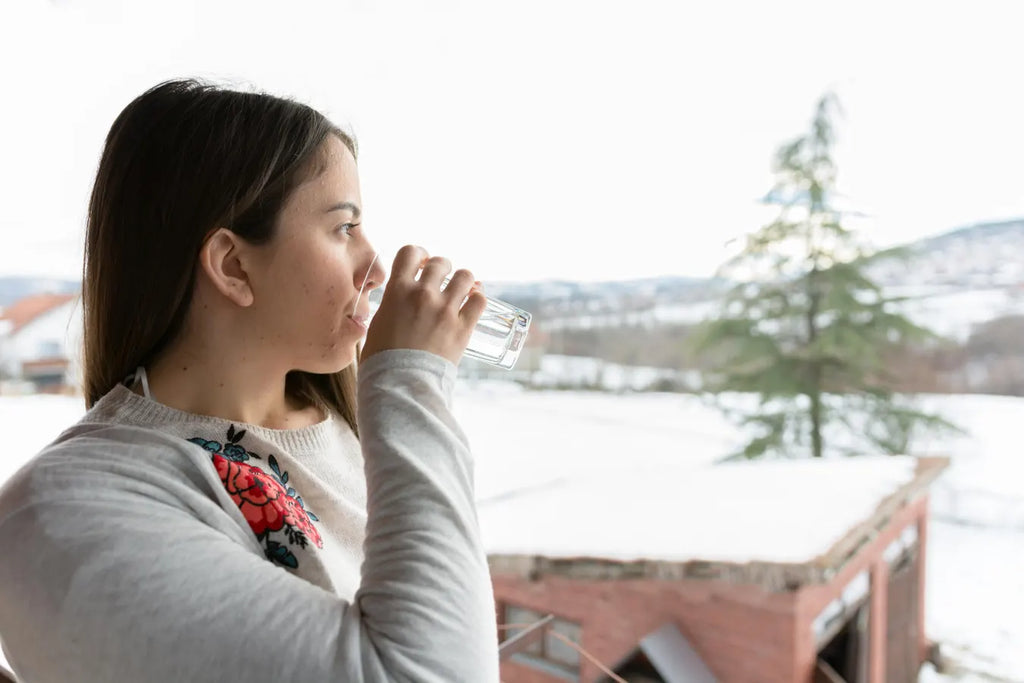
Staying Hydrated in Cold Weather: Tips and Supplements to Help
When people think about hydration, they often associate it with hot summer days, sweating, and the need to replenish fluids lost to the heat. However, staying hydrated in cold weather is just as crucial—if not more so—because the body’s thirst response is diminished, and dehydration can go unnoticed. Whether you’re heading out for a brisk walk, engaging in winter sports, or simply going about your daily routine, maintaining proper hydration levels is essential for overall health and well-being. Here, we’ll explore why hydration matters in winter, signs of dehydration to watch out for, practical tips for staying hydrated, and useful supplements that can support your hydration efforts.
Why Hydration Matters in Cold Weather
During winter, the body loses moisture in ways we may not always recognise. Cold air is typically drier, leading to increased water loss through respiration. When you see your breath on a chilly day, that's water vapour leaving your body. Additionally, indoor heating systems create a dry environment that can contribute to dehydration without you even realising it. Even though you may not feel as thirsty as you do in the summer, your body still requires a consistent intake of fluids to function optimally.
Hydration is crucial for various bodily functions, including regulating body temperature, ensuring proper circulation, aiding digestion, and keeping skin healthy. In winter, when people often consume more caffeinated drinks like coffee and tea, which have diuretic properties, dehydration can occur more quickly than expected. Moreover, winter dehydration can lead to symptoms like fatigue, dry skin, headaches, and even weakened immune function—something particularly important to consider during flu season.
Signs of Dehydration in Cold Weather
Dehydration doesn’t always manifest in obvious ways, so being aware of the subtler signs is key to preventing it. Some common symptoms include:
- Dry mouth and chapped lips
- Dark yellow urine or reduced urine output
- Dry, flaky skin
- Fatigue and dizziness
- Headaches
- Muscle cramps
- Reduced concentration and brain fog
If you notice any of these signs, it’s important to increase your fluid intake promptly to restore balance.
Practical Tips for Staying Hydrated in Winter
-
Drink Warm Beverages
Since cold drinks might not be as appealing during chilly weather, opt for warm fluids like herbal teas, hot water with lemon, or warm broths. These can keep you hydrated while also providing comfort and warmth. -
Set Hydration Reminders
Because your thirst response is reduced in cold weather, setting reminders on your phone or using a smart water bottle that tracks your intake can be a great way to stay on top of your hydration goals. -
Eat Hydrating Foods
Incorporate foods with high water content into your diet, such as oranges, cucumbers, watermelon, soups, and stews. These not only provide hydration but also essential vitamins and minerals to support your health. -
Limit Diuretic Beverages
While coffee, black tea, and alcohol are popular choices during winter, they can contribute to dehydration if consumed in excess. Try to balance these with plenty of water or non-caffeinated herbal teas. -
Use a Humidifier
Dry indoor air can cause dehydration through the skin and respiratory system. Using a humidifier can help maintain moisture levels in your home, reducing the risk of dehydration. -
Carry a Reusable Water Bottle
Having a water bottle with you at all times can serve as a visual reminder to drink water throughout the day, making it easier to maintain hydration. -
Drink Water Before, During, and After Exercise
Even in cold weather, physical activity leads to water loss through sweat and respiration. Hydrating before and after exercise helps replenish lost fluids and prevents dehydration. -
Infuse Your Water with Flavour
If plain water feels unappealing in winter, add slices of citrus fruits, berries, or herbs like mint to enhance the taste and encourage yourself to drink more.

Supplements to Support Hydration
In addition to drinking enough fluids and eating hydrating foods, certain supplements can support your hydration efforts, particularly in winter when electrolyte balance and immune function are key concerns.
-
Electrolyte Powders and Tablets
Electrolytes like sodium, potassium, magnesium, and calcium help regulate fluid balance in the body. Using an electrolyte supplement can be beneficial, especially if you exercise frequently or consume diuretic beverages. -
Collagen Supplements
Collagen supports skin hydration and elasticity, which can be especially helpful in winter when skin tends to become dry and flaky. -
Hyaluronic Acid
Known for its ability to retain water, hyaluronic acid supplements can support skin hydration and overall fluid retention in the body. -
Vitamin C and Zinc
These essential nutrients help strengthen the immune system, which is particularly important during cold and flu season. Some hydration powders include vitamin C and zinc to provide added benefits. -
Coconut Water Powder
Coconut water is a natural source of electrolytes, and the powdered form is an easy way to enhance hydration on the go. -
Herbal Adaptogens
Adaptogenic herbs like ashwagandha and Rhodiola can help combat winter fatigue and stress, indirectly supporting hydration by encouraging better overall health and energy levels.
Final Thoughts
Staying hydrated in cold weather requires a conscious effort, as the body's natural signals for thirst can be less noticeable. By incorporating warm beverages, hydrating foods, and useful supplements, you can ensure that your body stays well-hydrated throughout the winter months. Keeping up with hydration not only supports your energy levels but also enhances skin health, immune function, and overall well-being. So, whether you’re out in the cold or keeping warm indoors, make hydration a priority this winter!

